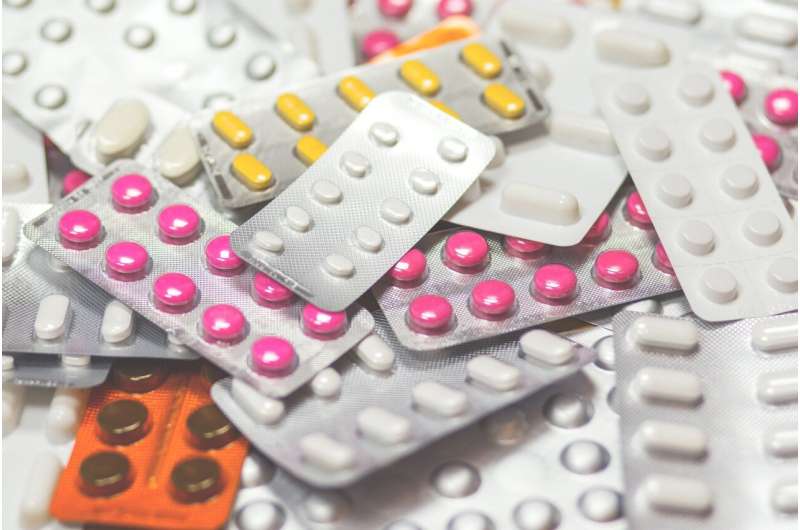Common psychiatric drugs appear to reduce effect of COVID-19

A new meta-analysis shows that psychiatric medications can give some protection against COVID-19, with the common antidepressant fluvoxamine showing the strongest effect. Patients taking fluvoxamine showed reduced symptoms, with the analysis indicating that mortality was around 15% lower than in those not taking fluvoxamine.
The analysis considered 30 clinical studies, including 145,000 patients. The resulting paper, "Psychotropic drug repurposing for COVID-19: A Systematic Review and Meta-Analysis," will be published in the January 2023 edition of the journal European Neuropsychopharmacology.
Here is a brief interview between the ECNP Press Officer, Tom Parkhill, and the lead author, Dr. Giovanna Fico (University of Barcelona):
TP: What are the main findings of this paper?
GF: We found that fluvoxamine may reduce the risk of severe COVID-19 outcomes and might be a good candidate for drug repurposing in COVID-19, while the increased risk for severe COVID-19 with antipsychotics is not absolute and depends on individual cases
TP: Do you think this should change clinical practice?
GF: Evidence on the efficacy of antidepressants for the treatment of COVID-19 is still scarce, so we cannot conclude that clinicians should start antidepressants in patients with COVID-19 infection. However, patients already on treatment with antidepressants who get infected with COVID-19, should not discontinue this treatment. There are a couple of reasons for this. First, patients with depressive disorder who discontinue antidepressants have a higher risk of having another depressive episode. Second, we know that antidepressants can be prescribed safely in patients with COVID-19. We believe it is possible that antidepressants can reduce mortality in patients with COVID-19, but the evidence is still weak.
TP: The paper states 'Fluvoxamine was associated with a reduced risk of mortality for COVID-19 (OR=0.15; CI 0.02–0.95).' Can you tell me how this might compare to other drugs being investigated for COVID?
GF: Many other drugs were studied as associated with a reduction in COVID-19 mortality: metformin (aRR, 0.33; 95% CI, 0.25–0.43), colchicine, angiotensin-converting-enzyme inhibitors (ACEi), angiotensin II receptor blockers, statins, vitamin D, antihistamines, alpha-blockers, anti-androgens, and nonsteroidal anti-inflammatory drugs (aRR, 0.69; 95% CI, 0.61–0.78), apixaban (hazard ratio, 0.42; 95% CI, 0.363 to 0.48; corrected CI, 0.336 to 0.52) and aspirin (hazard ratio, 0.72; 95% CI, 0.60 to 0.87; corrected CI, 0.54 to 96), among others. In our meta-analysis fluvoxamine showed a low-moderate effect on the reduction of mortality for COVID-19.
TP: I think the issue is that people who are already taking fluvoxamine should continue taking it, but what about those who don't have a psychiatric condition? Should severely at risk people be taking it?
GF: Several randomized clinical trials on fluvoxamine as COVID-19 treatment have been conducted (also after the publication of our meta-analysis). The last published paper on RCT on the topic stated, "Based on our reanalysis, it appears fluvoxamine is associated with a statistically significant decrease in the risk of hospitalization when given to COVID-19 outpatients." Still, I believe, we have too little evidence to make clinical recommendations to start fluvoxamine in patients at risk for severe COVID-19.
More information: Giovanna Fico et al, Psychotropic drug repurposing for COVID-19: A Systematic Review and Meta-Analysis, European Neuropsychopharmacology (2022). DOI: 10.1016/j.euroneuro.2022.10.004


















